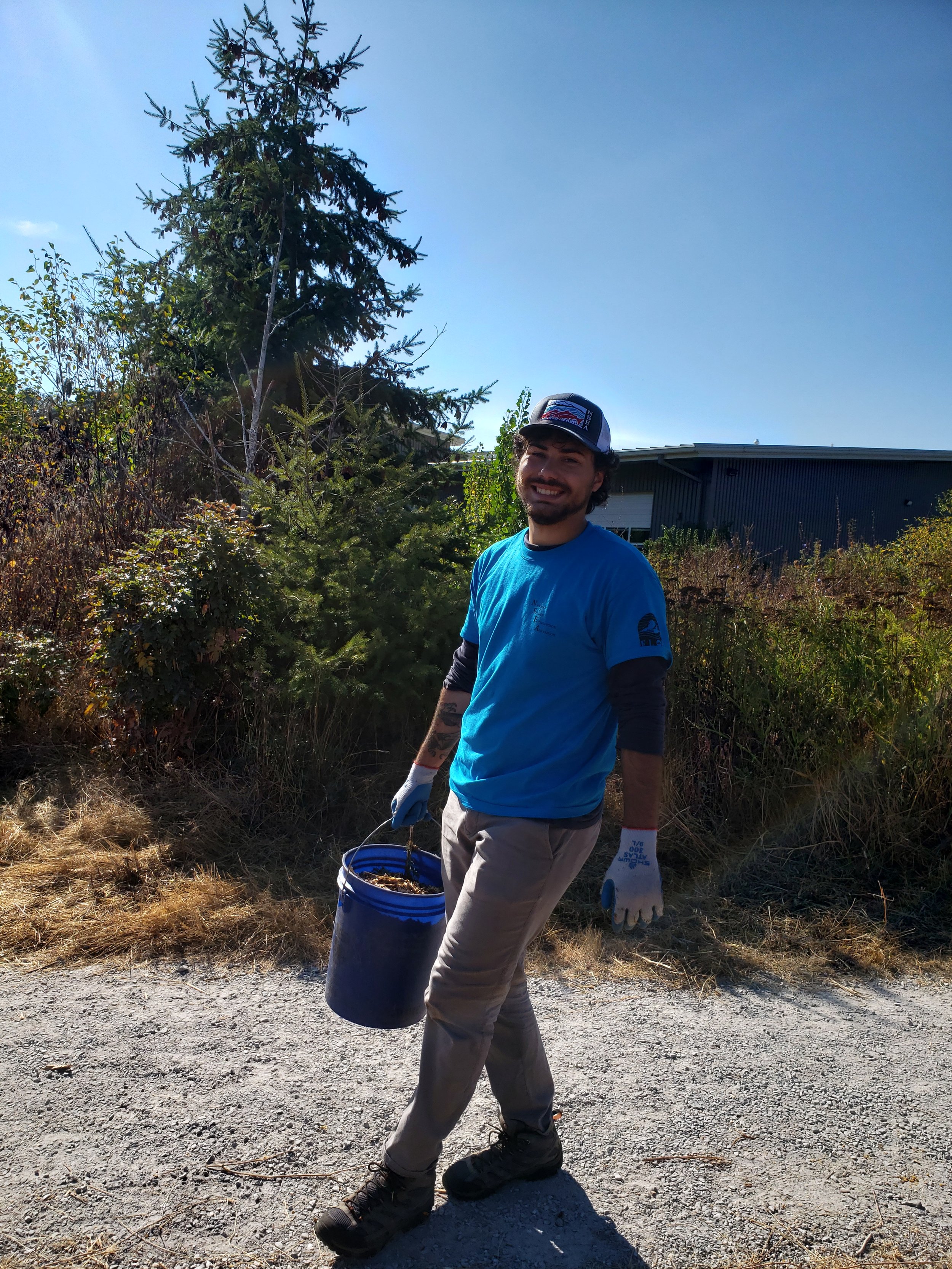NSEA and Western Washington University's
Certificate Program
What is it
NSEA and Western Washington University's Environmental Science and Environmental Studies Departments have collaborated to create two academic certificates. These certificates combine academic learning, hands-on training and paid internships that give students training and experience needed to apply a variety of skills to critical work in watershed restoration and community education and engagement. Throughout the two-year program, students engage in courses to learn the current environmental issues in fisheries habitat and how best to design research, education, science, policies, and community action while also participating in hands-on practicum work through paid internships with the Nooksack Salmon Enhancement Association (NSEA) a local salmon recovery organization to support students in gaining the skills and experience in supporting salmon recovery.
Salmon Enhancement: Community Education Certificate
Offered through the Environmental Studies Department.
View this program in the University Catalog.
Salmon Enhancement: Habitat Restoration Certificate
Offered through the Environmental Science Department.
View this program in the University Catalog.
Students should apply for the certificate that best aligns with their major and its degree requirements.
Who Should Apply
These certificate programs have been developed in accordance with the equity principles of Career Connect Washington in mind. Career Connect Washington's equity mission is to ensure that demographics and student characteristics such as race, income, geography, gender, and citizenship status do not predict the academic and career outcomes of Washington's students. In alignment with this goal, NSEA alongside WWU’s Environmental Studies Department and Environmental Science Department have designed these certificate programs with the intention of exposing historically underrepresented students to the field of environmental restoration. We particularly encourage applications from BIPOC students, LGBTQ+ students, multilingual students, students with disabilities, lower-income students, rural youth, foster children, homeless youth, and young parents.
Application Process
Students interested in the certificate program apply for NSEA’s Stream Stewards Internship. NSEA staff review applications quarterly and randomly select interviews from the top scored applicants. If hired, students will meet with a faculty certificate adviser to map out coursework and NSEA staff to plan internship hours and activities. Diverse students of all kinds are strongly encouraged to apply and bring their diverse experiences and perspectives to enrich, challenge, and enhance NSEA's activities.
How it Works
Students should expect to complete one to two certificate-related courses each quarter for three to six quarters. They should plan on completing 8 internship credits with NSEA, equivalent to about 240 hours of paid work. These internship credits will be divided between two quarter-long internships based on when you apply.
Students and NSEA may mutually agree upon additional paid internship hours that are beyond those required for certificate. These credits would not need to be taken for university internship credit.
Students will be expected to engage in internship activities that are both indoors and outdoors all year long. Some work may be physically strenuous. Tools, training, and transportation to field sites will be provided by NSEA.
What it’s like to be an NSEA intern
Why an NSEA internship



